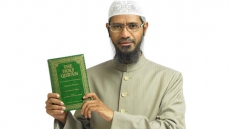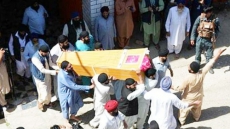Manmeet Kaur, 41, was having tea with her two young daughters at their rented house in old Mahavir Nagar in New Delhi when a phone call from her brother-in-law shattered her world.
She was told her husband Anup Singh Wadhwa (42) had died in the Jalalabad suicide attack. The body was identified by her 16-year-old son Dilpreet Singh from the gold ring and kara (bracelet) that he wore.
Terrified, Manmeet Kaur refuses to return to Afghanistan for her husband’s last rites. “Going back to Kabul would be putting ourselves in the jaws of death,” she says. Her daughter Jasmeet Kaur,15, wants the Indian Government to grant visa to her brother left alone in Afghanistan.
Another Sikh woman, who had arrived in Delhi barely a month ago with her children aged six and two, has also decided not to return for her husband’s cremation.
“ I can’t endanger my children’s life,” she says.
The grieving families held 13 akhand path at a Delhi gurdwara on Tuesday.
Taramjit Singh, head of the Afghan Sikh community in India, lost his paternal uncle in the attack. He says the Indian Government must take a compassionate view and grant permanent asylum to the families.
There are more than 5,000 Afghan Sikhs residing in West Delhi areas, including Old Mahavir Nagar.
This locality houses 1984 Sikh massacre victims who have given shelter to the Afghan Sikhs.
Paramjit Kaur, whose family was wiped out in 1984, says having undergone similar agony, they have decided to support the Afghan Sikhs.
Seventeen Sikhs were killed in the Jalalabad blast on July 1. Among them was poll candidate Avtar Singh Khalsa and civil society activist Rawail Singh.
More than 20 persons were injured. The attack was condemned by the UN.




